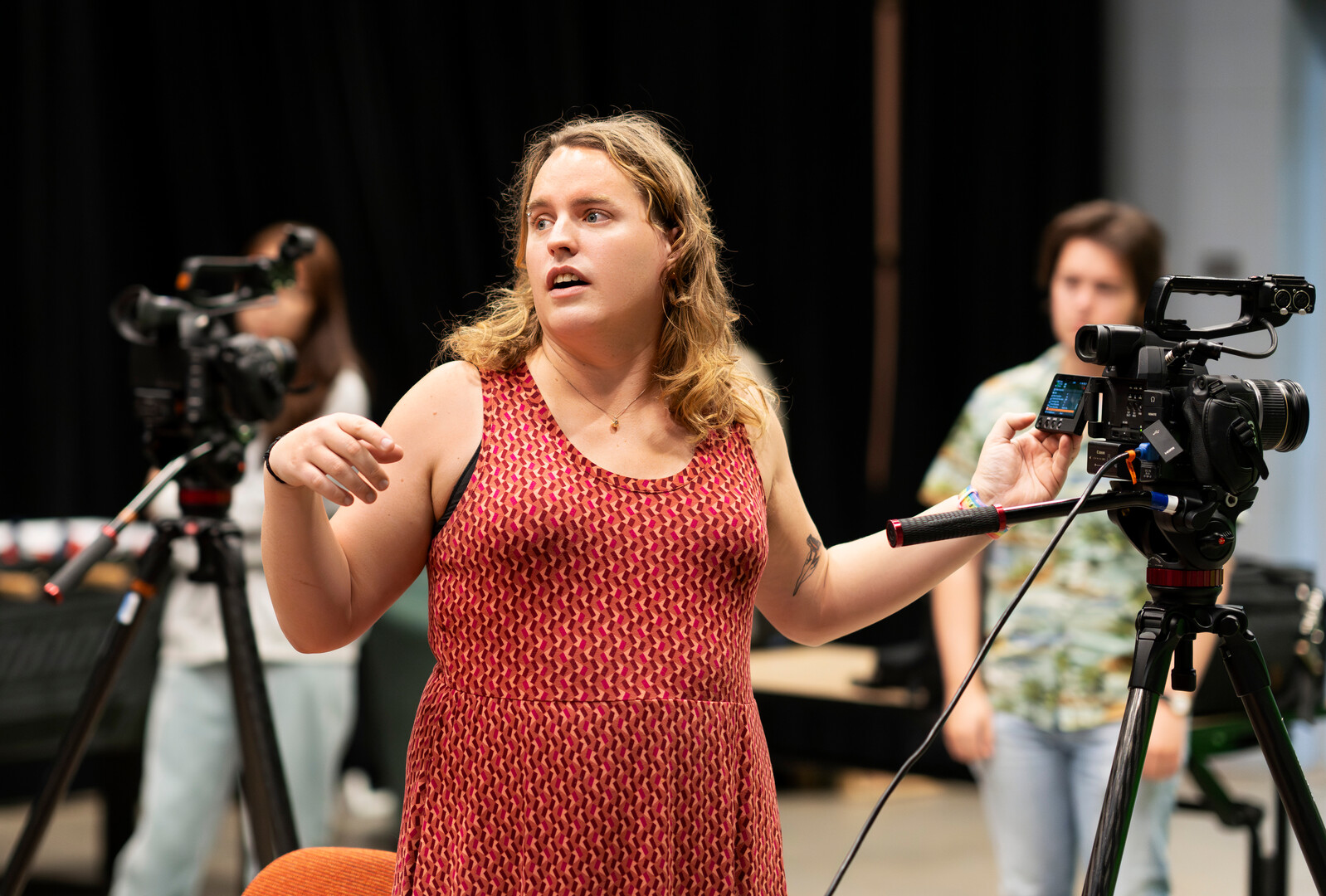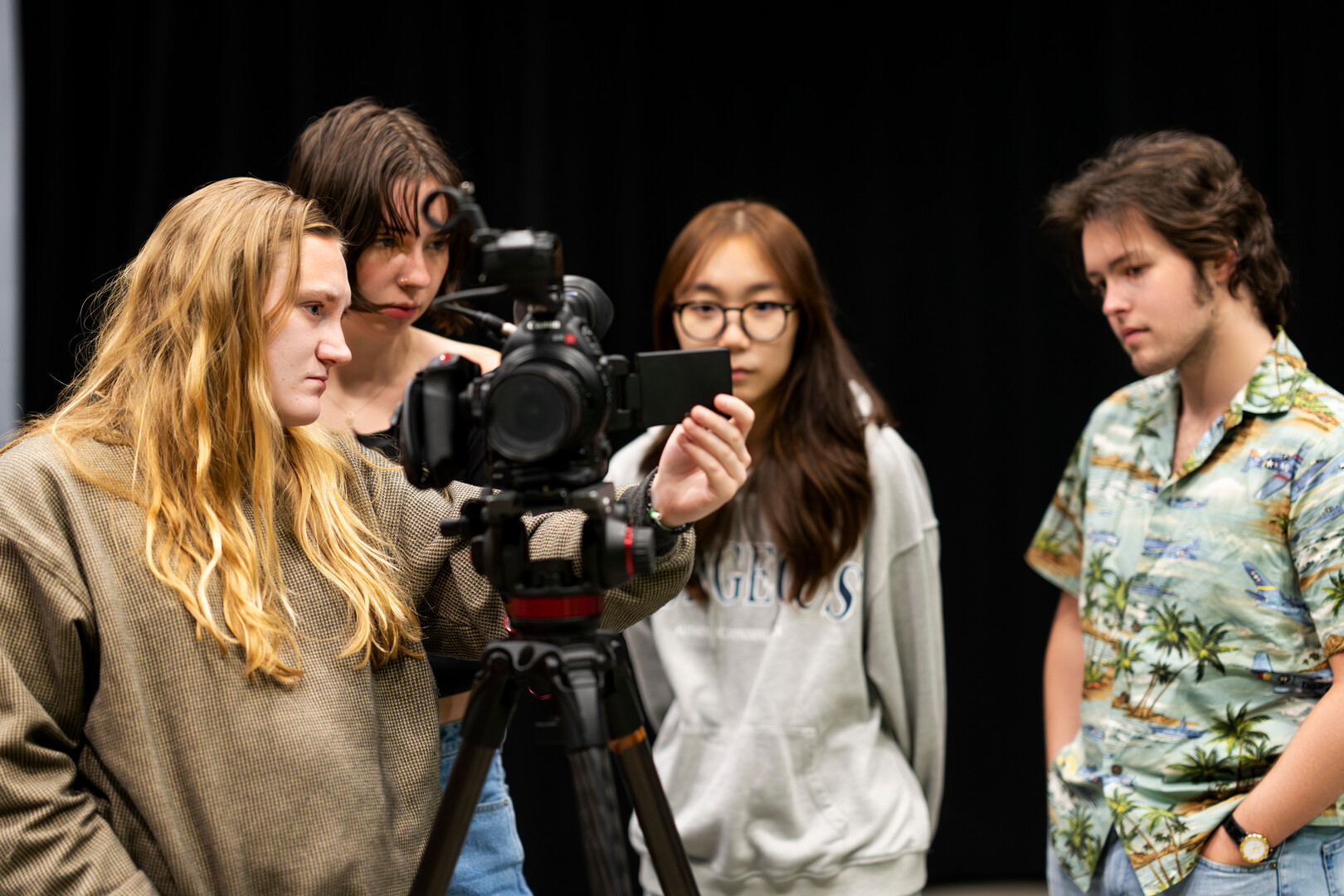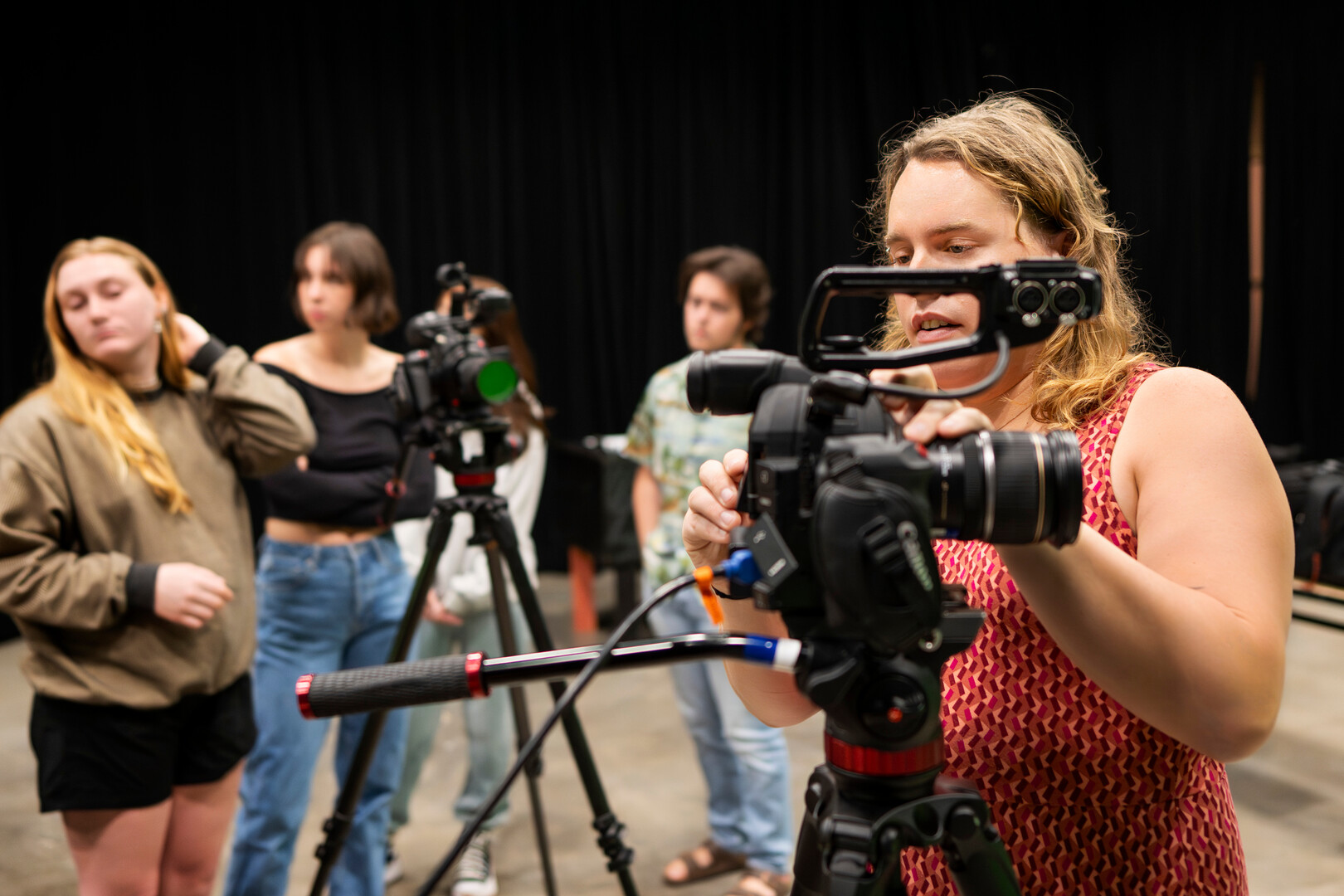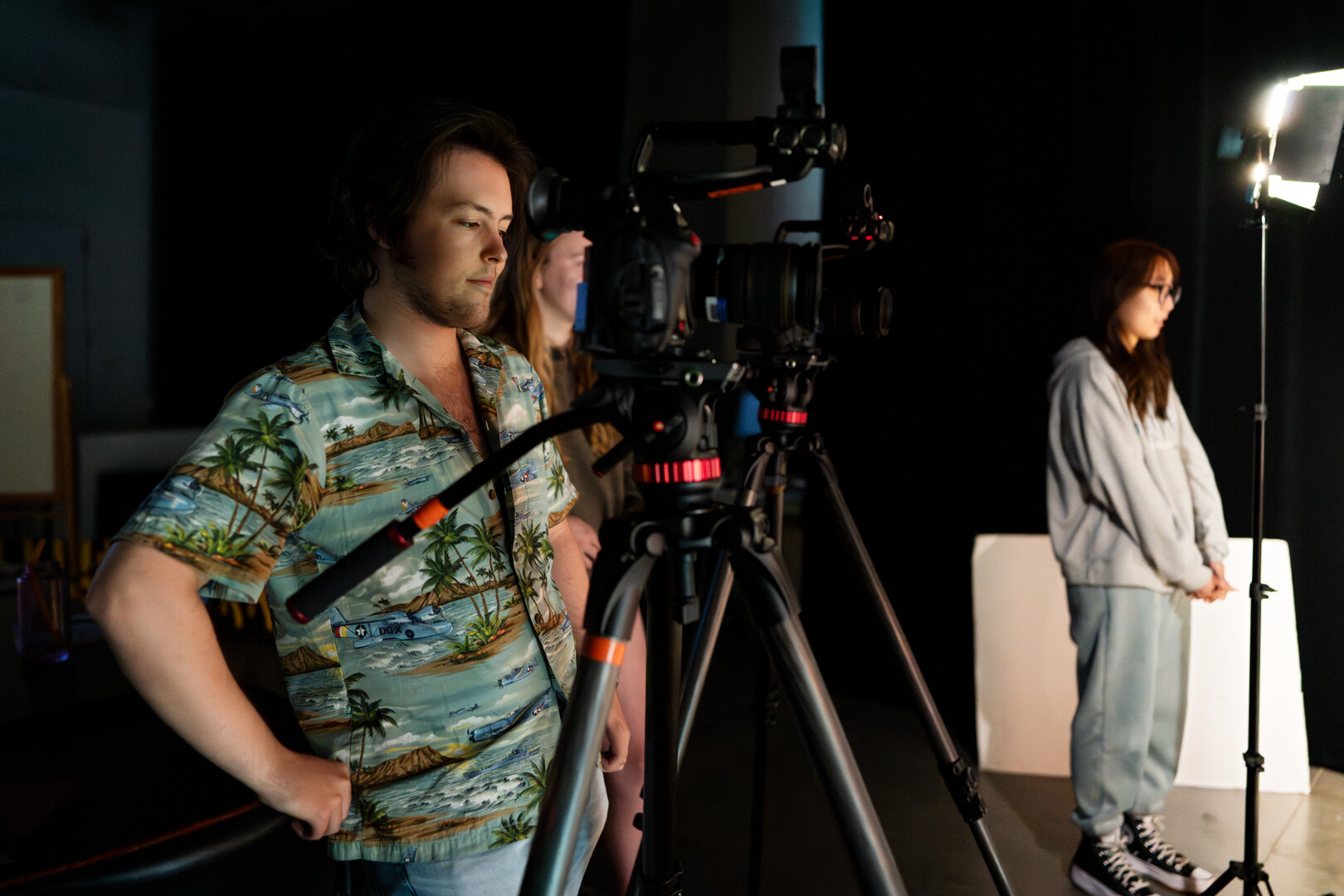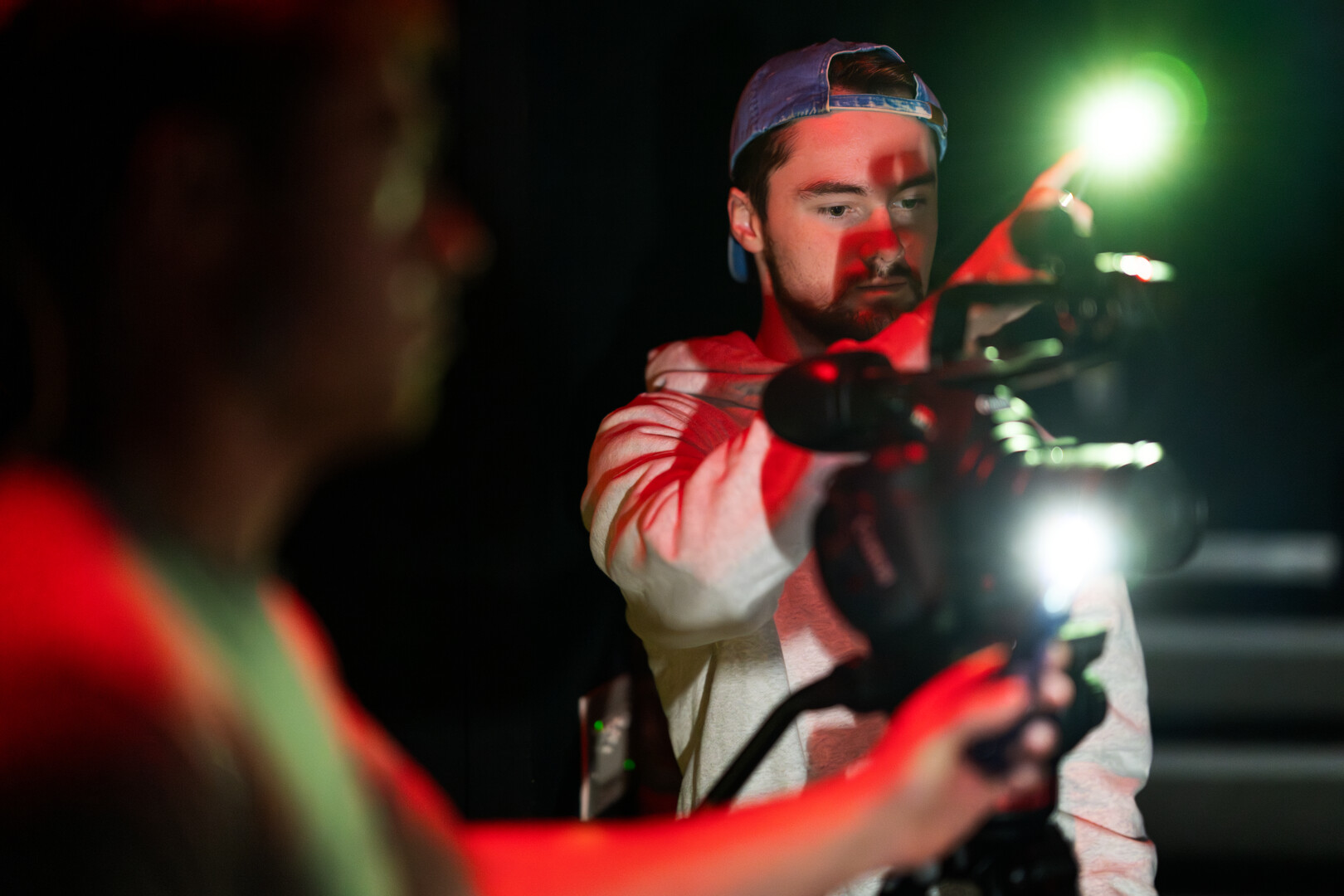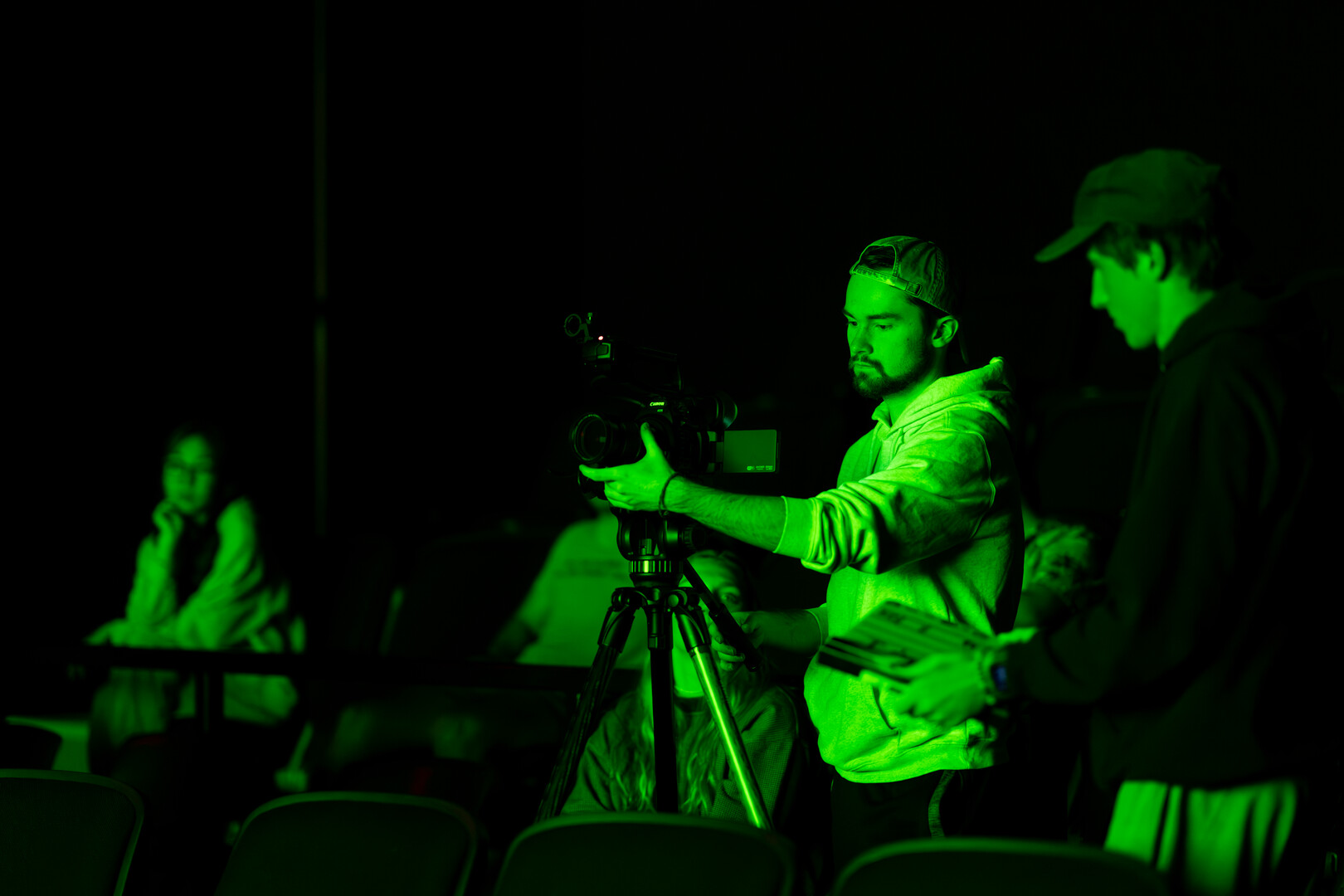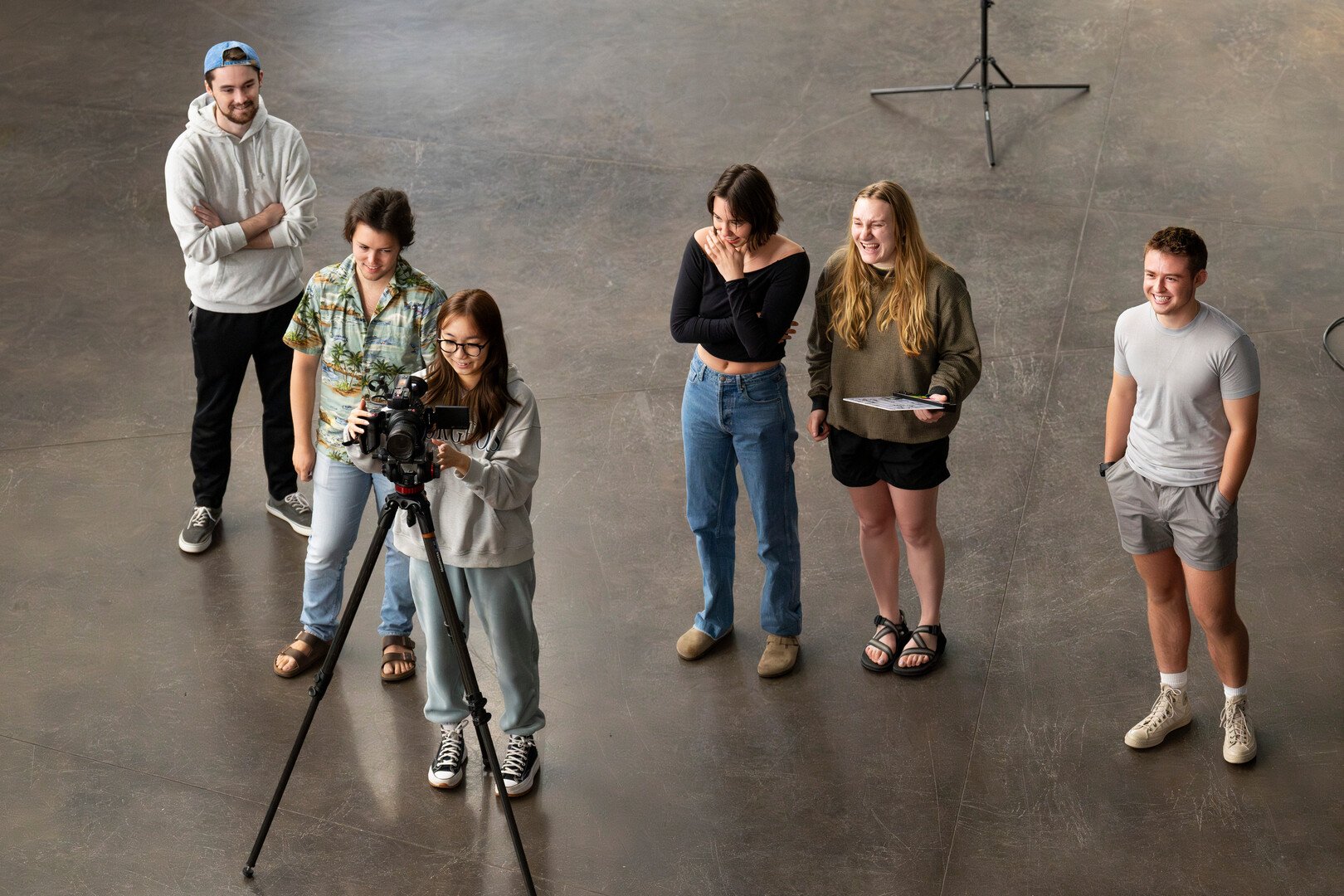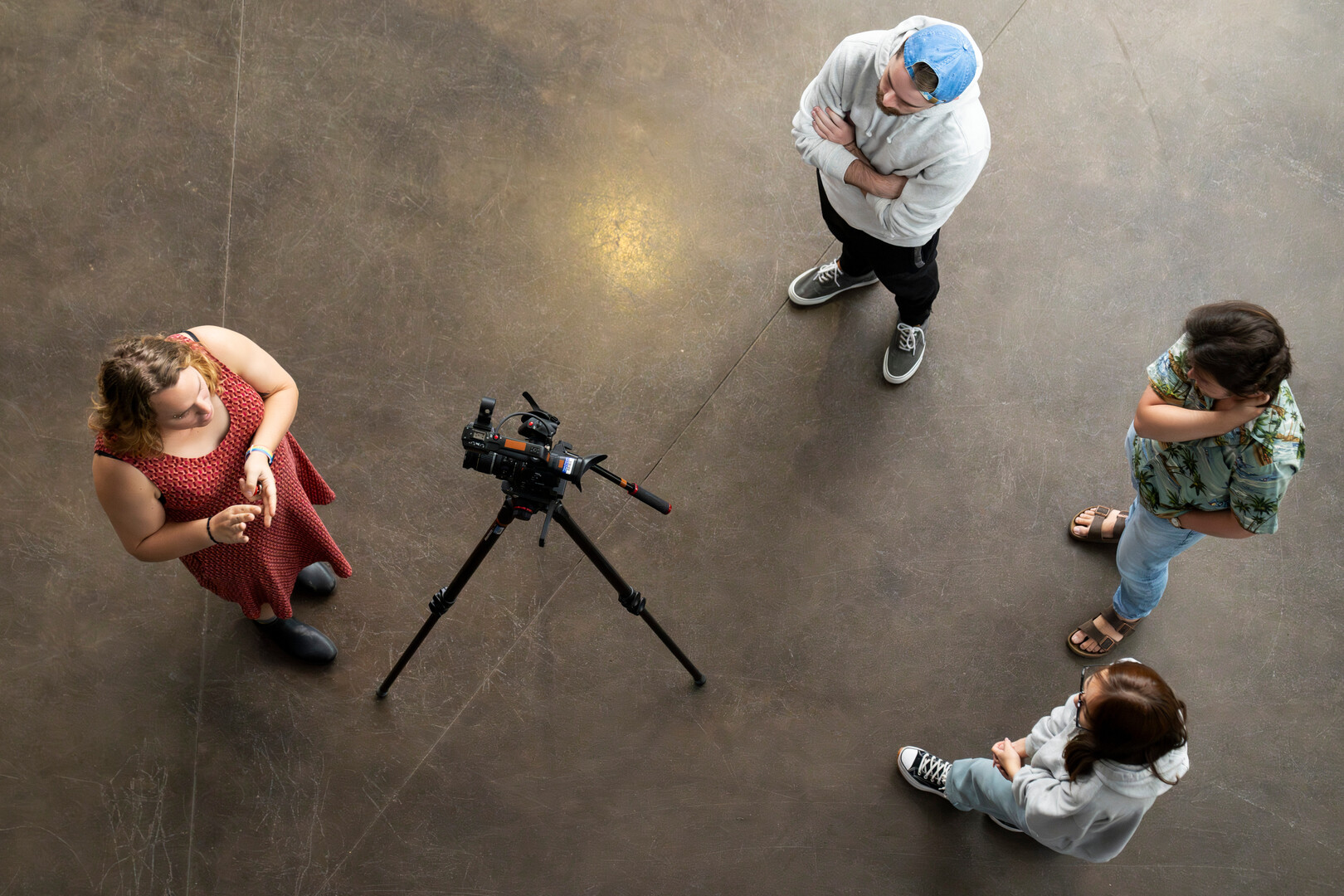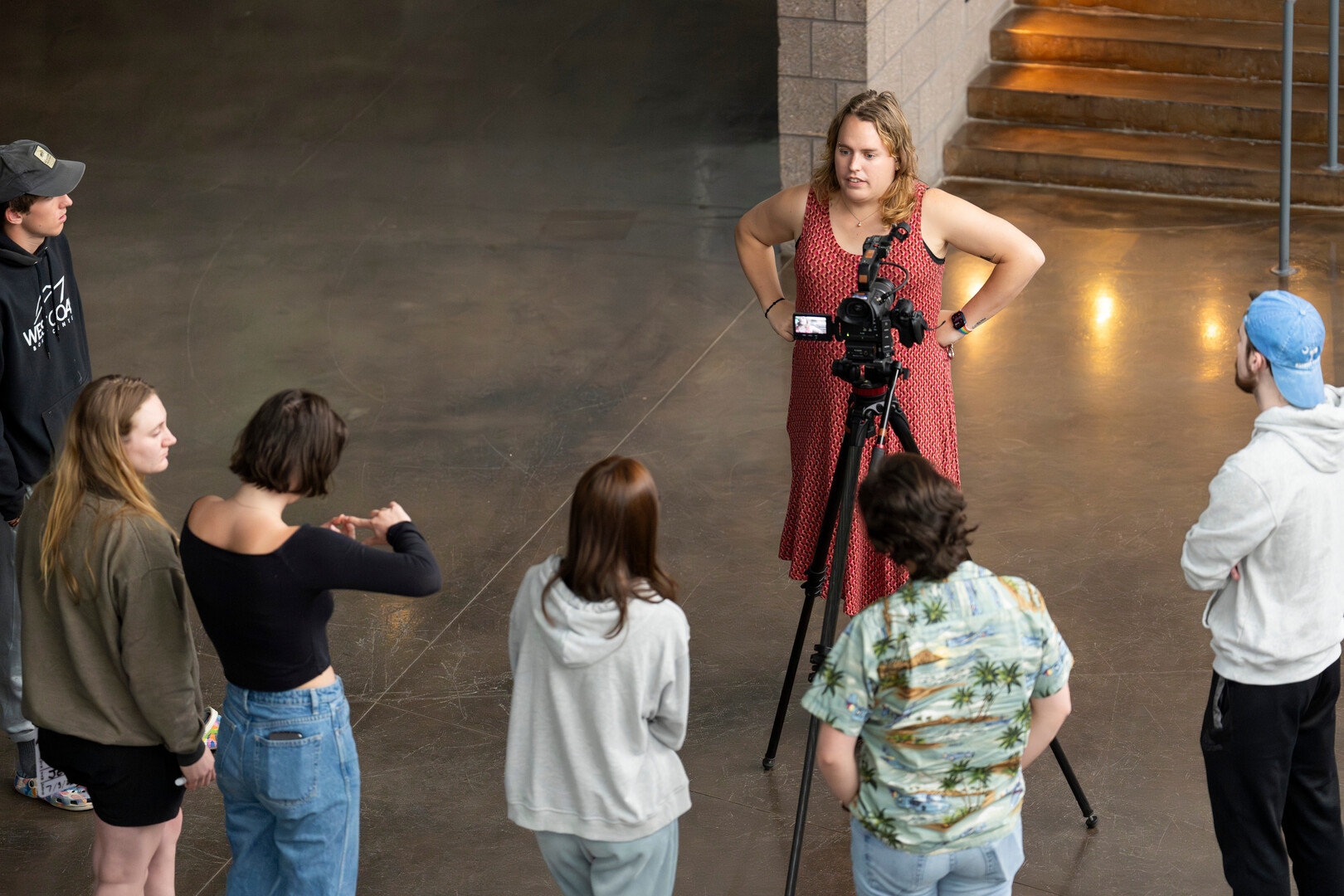This summer, film students had the opportunity to learn from a production design and visual effects professional — who happens to be a recent Colorado College graduate.
“My experience as a professional in the field, but also as a recent CC alum, has allowed me to bridge the gap from college life to post-college careers,” says Skye Mahaffie ’15. “I have worked in many different aspects of the larger entertainment industry and see myself as a resource to students not just when I’m on campus, but also as a first stop for those who choose to move to Los Angeles and into the Hollywood industry.”
Mahaffie has done a lot in the few years since graduating, even shifting her career focus from production to visual effects. Wherever she lands, however, she makes sure to connect with other CC alumni, recognizing the importance of CC’s network around the world. CC’s growing visibility helps alumni pursue excellent graduate schools and jobs, which Mahaffie strongly believes in.
In 2017, Mahaffie moved to Los Angeles and produced her first feature film, “July Rising,” with several CC students and alumni. While in California, she worked in film design, theatre, live events, and corporate entertainment. She co-founded Broken Slate, a creative collective made up of primarily CC graduates, which has produced four short films, including “What We Find in the Sea.” When the pandemic hit and took away Mahaffie’s on-set production work, she began working full time as a visual effects artist and graphic designer.
“Though many might see my career transition from on-set production design to digital post-production work as a huge change, to me, it is all part of the same larger concept,” she says. “How do we see and interact with the world of the film and the characters that inhabit it? How do I, as the filmmaker, design the visual world of the film? Indeed, so much production design is done digitally these days due to how powerful digital technology has become.”
Mahaffie says that much of filmmaking has moved towards “virtual production” which is a type of filmmaking where digital sets are projected on 360-degree screens which surround the actors, replacing the need for green screens and reducing post-production time. She aims to bring this worldview to the forefront during her Block B course.
“I want students to understand that these mediums are all part of the larger whole of designing the visual world of any kind of storytelling. In the class, I teach students about the interconnected worlds of animation and visual effects, tying theory immediately into practice.”
And students are taking note of this value. “I definitely feel like I'm learning about the basic, firm foundations and practical skills for getting into animation,” says Jenny Kim ’24, an international political economy major. “I was nervous before taking the class because I had no knowledge of any designing apps or academic exposure to digital art, but Skye introduces animation in a very beginner-friendly way which helped a lot with my confidence in class and having fun.”
Mahaffie begins each day with showing students one or two short films and discussing the animation design and techniques used in the films. She then teaches about the tools and skills students need to know for their upcoming projects and assignments. Afterwards, students have the opportunity to explore the software and skills they’ve learned, with one-on-one feedback from Mahaffie.
“I enjoy Skye's class because she brings her own professional expertise into the classroom while also teaching in a way that is accessible to students with varying degrees of experience,” says Reed Tafel ’24, a film and media studies major. “She does an excellent job incorporating real life examples and hands-on learning into her day-to-day teaching.”
Throughout this class, students are learning the art and technique of illusion and how to manipulate images to tell a story. Students are working on producing their final film projects, which are made using the various styles of animation and visual effects that they’ve learned during the block.
All the students’ hard work will be displayed for the public to see on Wednesday, July 19, at 7 p.m. in the Edith Kinney Gaylord Cornerstone Arts Center screening room.
The screening is free and open to both the Colorado College and broader Colorado Springs communities. No RSVPs or tickets are required. For information on accommodations and accessibility, please visit the Accessibility Resources website or contact Accessibility Resources at (719) 227-8285.

